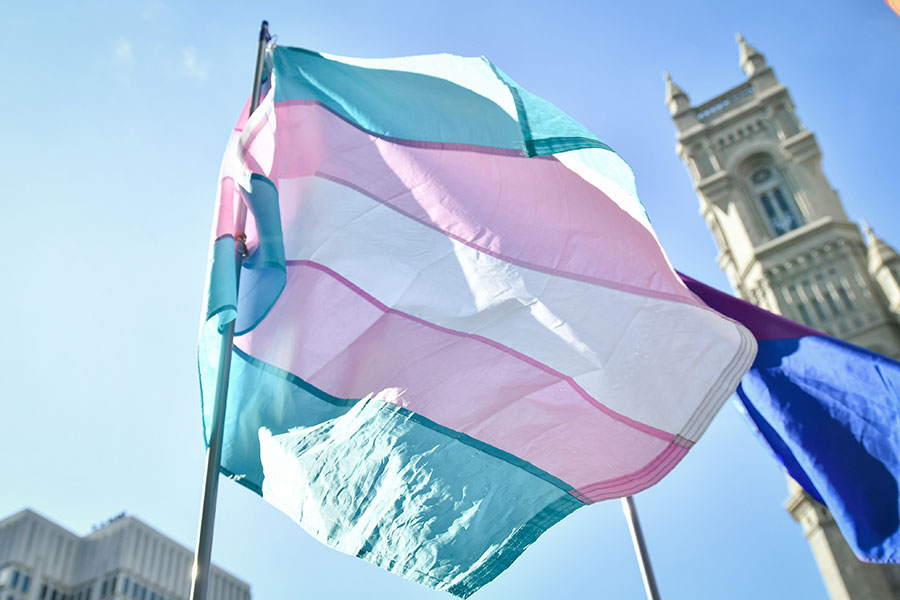Devereux Advanced Behavioral Health, a national healthcare nonprofit with a center in Villanova, has adopted a new interdisciplinary approach to working with trans and gender-expansive youth.
The Gender Affirmative Model, developed from a book published by the American Psychological Association in 2018, establishes a framework for helping children live as their authentic gender. It emphasizes a holistic approach for children and their families that includes resilience and wellness and addresses the psychological, social, cultural and community challenges gender-diverse youth face.
The framework examines topics including addressing trauma that children have experienced because of their gender identity and the differences in supporting youth in exploring gender-expansive expressions versus affirming a gender identity.
The model is the first to standardize guidelines for the optimal ways to serve the LGBTQ community in the behavioral health field, said Dr. Yolanda Graham, Devereux’s senior vice president and chief clinical and medical officer.
“It’s a concise compilation of best practices starting at our understanding, definitions, language and then actual interventions,” she added.
The model utilizes the entire spectrum of gender to inform its techniques, Graham said.
“Even as an expert in the field, there are new definitions that were unfamiliar to me,“ she added. “It becomes an education in being able to meet youth where they are in terms of their identity, rather than trying to define it within a box.”
“The Gender Affirmative Model: An Interdisciplinary Approach to Supporting Transgender and Gender Expansive Children” was edited by Colt Keo-Meier, a clinical psychologist who identifies as a transgenderqueer man, and Diane Ehrensaft, a developmental and clinical psychologist who specializes in work with gender-expansive children.
Devereux was established in 1912 and buckled down on developing competency in working with the LGBTQ community about six years ago, Graham said. The group’s Arizona, Florida and Georgia centers have been certified by the Human Rights Campaign for establishing policies and practices that welcome, support and affirm LGBTQ foster and adoptive parents. The Pennsylvania location is pursuing certification.
But Devereux’s leadership decided implementing the Gender Affirmative Model in the center’s clinical approach was also key to better reaching the queer population, Graham said.
According to the National Alliance on Mental Illness, suicide is one of the leading causes of death for LGBTQ people ages 10-24. LGBTQ youth are four times more likely, while questioning youth are three times more likely, to attempt suicide, experience suicidal thoughts or engage in self-harm compared to their non-LGBTQ peers.
The Trevor Project, an organization focused on suicide prevention for LGBTQ youth, has found that LGB youth who feel rejected by their families are about eight times more likely to have attempted suicide.
Devereux officially adopted the Gender Affirmative Model in June. Alongside it, the organization rolled out a gender-support plan to inform clinicians on how to best assist children in different settings, including schools, homes and the clinic, Graham said.
Admission staff and caregivers work with patients to fill out the document, which details expectations around areas including pronoun usage, gender expression, hormone therapy and safety during care.
The importance of the new model comes from the value of having a high-standard of sensitivity toward LGBTQ patients, Graham told PGN.
“It is very easy as well-intentioned practitioners to make a statement that may actually be harmful to a person and not meant in that intent,” she said. “If someone does not have the knowledge of the correct language or how it’s empowered, you could actually do more harm than good.”
Many clinics are beginning to adopt the recently-released model, which could indicate a changing narrative around mental health in the LGBTQ community, especially regarding youth.
“My hope is that every youth that comes through Devereux’s doors that identifies as LGBTQ will leave feeling empowered in their own skin and able to voice themselves in a way that they can serve as their own advocates,” Graham said. n

